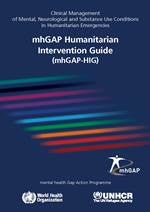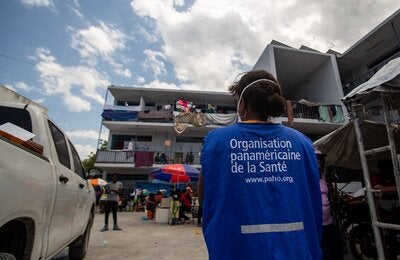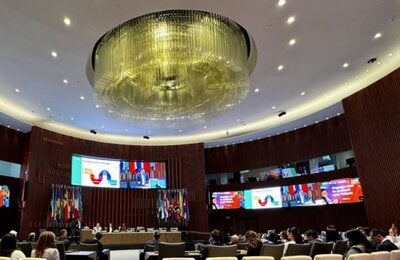
 People with mental health disorders rarely have access to specialized health workers trained in assessing and managing their conditions. WHO and the United Nations High Commissioner for Refugees (UNHCR) have therefore jointly produced the mhGAP Humanitarian Intervention Guide (mhGAP-HIG), so non-specialist health workers can better identify, assess and manage mental health needs.
People with mental health disorders rarely have access to specialized health workers trained in assessing and managing their conditions. WHO and the United Nations High Commissioner for Refugees (UNHCR) have therefore jointly produced the mhGAP Humanitarian Intervention Guide (mhGAP-HIG), so non-specialist health workers can better identify, assess and manage mental health needs.The mhGAP-HIG contains first-line management recommendations for mental, neurological and substance use conditions for non-specialist health-care providers in humanitarian emergencies where access to specialists and treatment options are limited. It is a simple, practical tool that aims to support general health facilities, in areas affected by humanitarian emergencies, in assessing and managing acute stress, grief, depression, post-traumatic stress disorder, psychosis, epilepsy, intellectual disability, harmful substance use and risk of suicide. This new tool is an adaptation of WHO's mhGAP Intervention Guide, a widely-used evidence-based manual for the management of these conditions in non-specialized health settings.
WHO and UNHCR hope all humanitarian partners will use the new guide to help reduce suffering and increase the ability of adults and children with mental health needs to cope in humanitarian emergencies.



